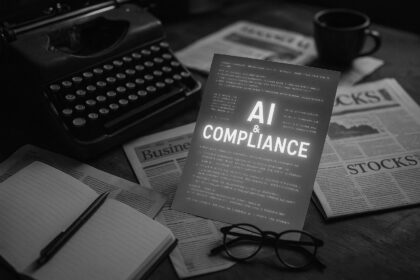Equity has called on the UK government to impose stringent legal protections for artists and performers following a new report exposing widespread data scraping by AI firms, criticising current opt-out models and urging a rights-based approach to safeguard originality and fair compensation.
Equity is calling for immediate action on artificial intelligence (AI) in response to a recently launched report that highlights the urgent need for the preservation of human originality and the importance of ongoing impact assessments. This report, introduced by Equity General Secretary Paul W Fleming to the All-Party Parliamentary Group on the Future of Work, comes amid growing concerns about the implications of AI for creatives. Fleming described the present handling of AI as tantamount to “legalising theft,” citing the widespread practice of data scraping—wherein creators’ works are utilised without their knowledge, consent, or financial compensation.
The urgency of Equity’s plea is further underscored by the alarming trend of data scraping affecting its members, many of whom are artists and performers. According to a prior announcement from Equity, there is a pressing need for a rights-based approach to the UK government’s AI Opportunities Action Plan, which demands that ethical data practices be at the forefront of AI adoption. With an advocacy base of approximately 50,000 members, Equity stresses that the government’s proposed opt-out model for data mining is inadequate. The union is calling for transparency and informed consent regarding the use of personal data in AI systems.
The report aligns with recommendations made by the Culture, Media and Sport Committee, which has indicated that big tech firms frequently utilise creators’ work without appropriate licenses. This illegal appropriation of creative content has prompted calls for the enforcement of existing copyright laws and for AI companies to adequately compensate creators. Equity’s ‘Stop AI Stealing the Show’ campaign specifically targets the potential introduction of exceptions that would allow corporations to exploit creative works without compensation. This campaign further advocates for a ban on the opt-out model, arguing for the need for stringent legal protections for creatives.
In a broader context, the House of Lords Communications and Digital Committee recently warned that the UK risks becoming an “incubator economy” if it fails to adequately support AI and creative technology startups. This concern stems from the observation that many innovative British companies are relocating or being acquired by foreign entities, undermining the country’s global competitiveness. To counteract these trends, the committee suggests the establishment of robust support systems and regulatory frameworks to ensure the technology sector can thrive.
In summary, the report signifies a critical moment for the creative industries, with stakeholders increasingly recognising the necessity for comprehensive protections against the encroaching influence of AI. The establishment of an environment where creators retain control over their work is crucial, not only for their livelihoods but also for the cultural richness that originality brings to the UK.
 Reference Map:
Reference Map:
- Paragraph 1 – [1], [4]
- Paragraph 2 – [2], [5]
- Paragraph 3 – [3], [6]
- Paragraph 4 – [5], [6]
- Paragraph 5 – [7]
Source: Noah Wire Services
- https://www.equity.org.uk/news/2025/equity-calls-for-urgent-action-on-ai-following-new-report-launched-at-sxsw – Please view link – unable to able to access data
- https://www.equity.org.uk/news/2025/equity-calls-for-rights-based-approach-to-uk-government-s-plans-to-unleash-ai – Equity has called for a rights-based approach to the UK government’s AI Opportunities Action Plan, urging that ethical data use be central to AI adoption. The union represents 50,000 artists and performers, many of whom have had their data scraped by generative AI systems without consent or remuneration. Equity advocates for strengthened performers’ rights and the abandonment of the government’s opt-out approach to data mining, emphasising the need for informed, ethical data use within AI.
- https://www.equity.org.uk/news/2025/equity-calls-for-stronger-ai-protections-for-creative-workers – Equity, alongside other TUC unions, has published an AI manifesto for creative workers, calling for new rights to ensure copyright law is respected and to prevent the ‘theft of work’ from performers and artists. The manifesto advocates for transparency in AI training data, proper citation of sources, and the establishment of an AI taskforce to bring together creative workers, unions, technologists, and the government to manage AI’s risks and opportunities.
- https://www.equity.org.uk/news/2025/government-must-heed-committee-call-for-creatives-ai-protections – Equity has urged the government to heed recommendations from the Culture, Media and Sport Committee’s report, which calls for licensing creative works used to train AI models. The report highlights the illegal use of creators’ works by big tech firms and the need for AI companies to compensate creators appropriately. Equity emphasises that existing copyright laws are clear and should be enforced to protect creative workers.
- https://www.equity.org.uk/campaigns-policy/stop-ai-stealing-the-show – Equity’s ‘Stop AI Stealing the Show’ campaign addresses the issue of big tech firms using the intellectual property and personal data of the creative workforce without proper consent, transparency, or payment. The campaign highlights the government’s proposal to introduce an exception to copyright protections, allowing tech companies to scrape creators’ work for free in developing generative AI models without express permission or payment, and advocates for the abandonment of the opt-out approach to data mining.
- https://committees.parliament.uk/committee/170/communications-and-digital-committee/news/205059/uk-risks-becoming-an-incubator-economy-if-we-dont-take-action-to-support-our-tech-companies-to-scale-up/ – The House of Lords Communications and Digital Committee has warned that the UK risks becoming an ‘incubator economy’ unless it better supports AI and creative tech startups to grow into global competitors. The committee highlights the trend of innovative British technology companies moving to other markets or being acquired by foreign companies, which could lead to a decline in global competitiveness and economic growth.
- https://www.futureworkappg.org.uk/news/zownl0mx4t4n6smrk4dmzor0oz4djg – The All-Party Parliamentary Group for the Future of Work has published a report titled ‘The New Frontier: Artificial intelligence at work’, revealing how AI is transforming work and working lives across the UK in ways that have outpaced existing regulation. The report recommends the establishment of an Accountability for Algorithms Act to ensure a human-centred, principles-driven, and accountable AI ecosystem, including pre-emptive Algorithmic Impact Assessments and updated digital protections for workers.













